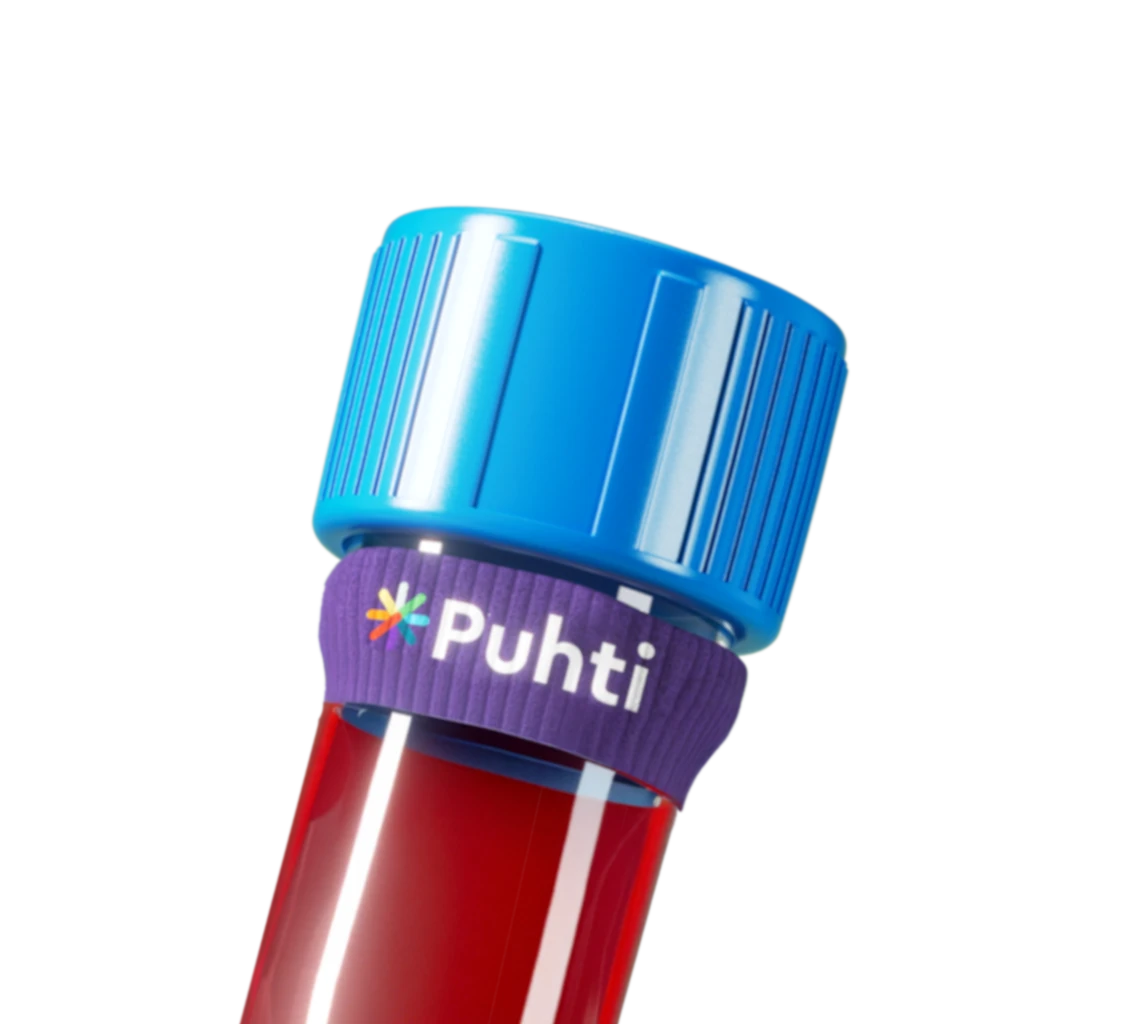
ALAT – reference values and liver health
Alanine aminotransferase (ALAT) is an indicator of the well-being of the liver. It reacts to long-term alcohol use and fatty liver disease caused by excess weight, for example.

ALAT – reference values and liver health
Alanine aminotransferase (ALAT) is an indicator of the well-being of the liver. It reacts to long-term alcohol use and fatty liver disease caused by excess weight, for example.
ALAT and liver health
- Liver plays a key role in the body’s metabolism and is involved in more than 500 different metabolic functions in the human body.
- Alanine aminotransferase (ALAT) is one indicator of the well-being of the liver.
- Alcohol consumption and abdominal obesity increase values of liver function tests.
- Liver health can be improved with healthy habits.
Liver is the body’s largest internal organ
The liver is the body’s largest internal organ, without which a person cannot survive. The liver plays a key role in the body’s metabolism and is involved in more than 500 different metabolic functions in the human body. Alcohol consumption and abdominal obesity increase values of liver function tests.
The liver is responsible for breaking down ingested substances, such as medicines and alcohol. The liver is also very important in the body’s energy metabolism. In addition, it stores vitamins, sugar and fats, produces proteins, and secretes bile for digestion. Damage to the liver affects the functions of the whole body.
Liver health
A healthy and well-functioning liver is vital for our well-being. Patients are not usually aware of liver disease in its early stages; the symptoms appear only after excessive strain to the liver.
Liver health can be improved with healthy habits. Alcohol, excess weight (especially abdominal obesity), and excessive intake of fast carbohydrates and hard fats increase fatty liver. This leads to a build-up of fats in the liver cells, which interferes with the normal functioning of the cells.
What is an alanine aminotransferease (ALAT) test?
ALAT stands for alanine aminotransferase. It is an enzyme involved in the metabolism of amino acids, functioning inside cells.
The determination of ALAT levels in plasma is the primary screening test for hepatocellular injury or inflammation.
ALAT enzyme is found especially in liver cells, but can also be found at lower concentrations in several other tissues (muscles, kidneys, lungs, and heart)
How can I get my ALAT tested?
You can order the ALAT as a single test from Puhti’s online store. Add the desired products to the shopping cart and complete all the tests at once.
The ALAT test is included in the following test packages:
- Puhti laboratory package
- Extensive Puhti laboratory package women
- Extensive Puhti laboratory package men
First, order the tests you need via Puhti. You do not need a doctor’s referral. You can visit one of our many laboratories in Finland. Most of the laboratories also serve customers without an appointment. You will receive an easy-to-read results report.
Reference values for P-ALAT
| Women | <35 U/l |
| Men | <50 U/L |
What is causing elevated ALAT levels?
Elevated ALAT levels are indicative of hepatocellular injury or inflammation. Elevated ALAT levels in the blood suggest liver dysfunction. There may be a number of reasons for elevated levels:
- fatty liver
- excessive alcohol consumption
- hepatitis (from viruses or medicines)
- cirrhosis
- long-term illnesses (such as heart or kidney failure)
- severe infections (such as blood poisoning)
- major burns
How can you affect your ALAT level?
The following actions are recommended:
- Reducing alcohol consumption.
- Weight loss, especially in cases of abdominal obesity.
- Consuming fatty and processed foods can impact liver values, so it’s advisable to reduce their intake and make dietary choices toward healthier options.
- Foods high in sugar can raise the levels, so it’s worth reducing the consumption of sugary items such as sugary juices, soft drinks, sweets, and pastries.




